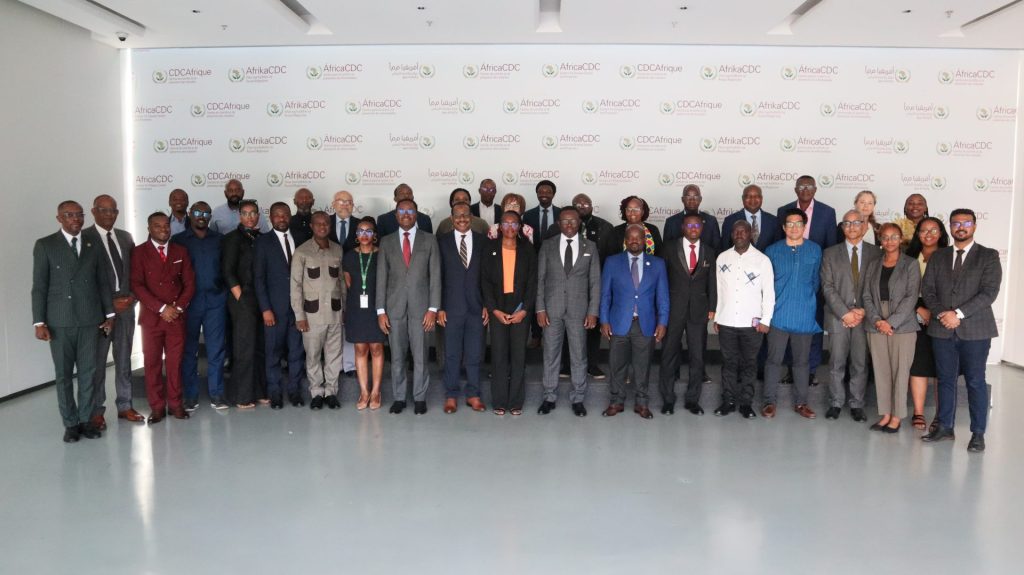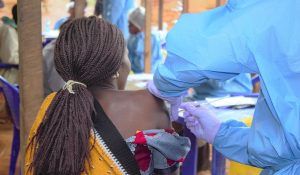Africa’s Experts Unite to Transform Primary Health Care through Digitalization
Africa’s public health story is at a turning point. The continent has shown remarkable unity in recent crises, from coordinating a multi-country response to mpox to advancing a continental framework for health data governance. But these successes also revealed a deeper truth: Primary Health Care (PHC) must evolve, and digitalisation is now essential to that evolution.
Stepping forward to drive this transformation, the Africa Centres for Disease Control and Prevention (Africa CDC) has introduced the Primary Health Care Digitalisation Expert Committee (PHC-DEC). Announced at the International Conference on Primary Health Care (ICPHC 2025) in Addis Ababa, the committee represents a new kind of leadership, one that brings together African expertise, practical experience and future-focused innovation in a single, continental platform.
The PHC-DEC is composed of up to 40 experts drawn from Member States, public health institutions, multilateral agencies, academia, the private sector and key implementing partners. This diversity is deliberate. Africa CDC designed the committee to ensure that decisions on digital health reflect the continent’s linguistic, regional, gender and sectoral perspectives, producing guidance that is technically sound and grounded in reality.
Unlike many advisory bodies that remain high-level, the PHC-DEC has a concrete, action-oriented mandate. Its members will advise on strategic direction, provide technical review of frameworks and implementation tools, and validate priority digital use cases such as maternal health platforms, Community Health Worker (CHW) applications and digital health identities. They will also support sustainable financing approaches and foster alignment between Member States and regional and global partners, essential ingredients for long-term digital health success.
But the committee’s importance goes further. Digitalisation can only transform PHC if countries know how to deploy it, integrate it and govern it. The PHC-DEC will provide structured feedback on what is working in countries, amplify innovations that are ready to scale, and guide Africa CDC’s development of practical tools such as the PHC Digitalisation Toolkit and a flagship RMNCAH/e-Birth/Unique ID use case. The committee’s advisory summaries and annual reports will help countries move from isolated pilots to coherent, interoperable national systems.
At its core, the committee exists to strengthen Africa’s PHC frontline. It will support country readiness assessments, deployment strategies and guidance on governance, interoperability and infrastructure. This work will help ensure that digital tools do not remain pilots or donor-funded experiments, but become integrated, sustainable components of daily service delivery.
The PHC-DEC also serves as the bridge between digitised PHC facilities — where data is generated — and national or regional Health Intelligence Centres (HICs), where data is translated into insights and action. This linkage is vital. Real-time visibility of PHC services will accelerate resource mobilisation, improve maternal and newborn outcomes, and strengthen pandemic preparedness and response. Digital PHC is not an accessory to health security, it is its foundation.
The committee’s role becomes even more critical when considering persistent gaps in community knowledge and health-seeking behaviour. Recent findings showed that as few as one in ten people in the Republic of Congo could identify more than three mpox symptoms. Digital systems alone cannot fix this, but digital tools informed by behavioural insights can. By turning these insights into actionable guidance, the PHC-DEC will help countries design solutions that reduce stigma, support trust and improve uptake.
In this sense, the committee is more than a technical group. It is the engine driving Africa’s shift towards smarter, people-centred and future-ready primary health systems. Its work ensures that digital health is inclusive, sustainable and responsive to local context. And by strengthening PHC — the first point of contact for most Africans — the PHC-DEC helps lay the foundation for a healthier, safer continent.







